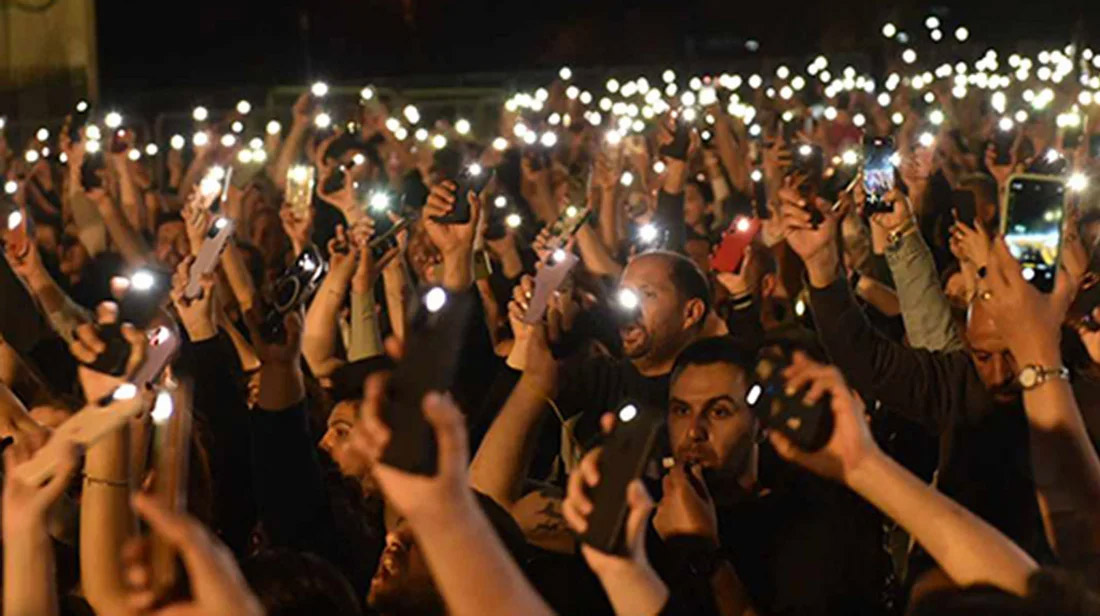In the UK, where there is no ban on the hijab for girls and women in public institutions including schools, we see an increasing number of successful, popular and respected public figures and celebrities wearing hijabs.
These include Fatima Manji, former news journalist and presenter for Channel 4 News; top TV chef Nadiya Hussain; and Rehana Khalil who represented the Great Britain basketball team while wearing a hijab. I have, myself appointed women in hijabs in my workplace. This attire is now a mainstream aspect of British life.
To understand the outrage among Turkish Cypriots over the hijab, we need to consider their development as a community over the past century and the troubling implications that introducing the hijab in schools holds for their future.
The Islamic pious foundation Evkaf was established shortly after the Ottomans conquered Cyprus from the Venetians in 1571. Effectively, all state activities relating to religious endowments such as mosques, schools, charities and the management of vakif (trust) properties, revenue generation from shops, farms and mills and the administration of Sharia courts were “outsourced” to this institution by the Ottoman Divan in Nicosia. It was a cornerstone of Islamic life for the Turkish Cypriot community.
In 1924, Mustafa Kemal Ataturk, as part of his sweeping reforms, abolished the Ottoman Caliphate, closed madrasas and replaced Sharia courts with secular ones. Turkish Cypriots loyal to Ataturk then pressed to secularise Evkaf schools and end religious curricula. Initially, this was strongly resisted by many associated with the Evkaf, arguing that Islamic education was non-negotiable for Muslim identity.
The curricula were rewritten to include modern subjects, although Evkaf schools continued teaching Quran, Arabic and Islamic law until the 1950s as a compromise. By the early 1960s all activities of Evkaf came under the democratic control of elected representatives. This hard-fought battle left Turkish Cypriots with an indelible belief in Kemalism. For this reason, they remain determined to defend their democracy and secularism to the bitter end.
It is clear that the Justice and Development Party (AKP), in office since 2002, is pursuing the Islamisation of northern Cyprus, as they have done in Turkey. Whatever their motivation might have been for Turkey, they have been less than wise to hoist the hijab policy upon northern Cypriots. This is not a battle they can win against such a staunchly Kemalist community. Instead, they risk alienating Turkish Cypriots totally unnecessarily.
The Greek Orthodox church in the south and the Islamists in the north have much in common. They both advocate full integration of religion into all aspects of education and broader politics. To them, secularism is anathema.
What differs, however, is that the church already holds a privileged position at the heart of political discourse, while the Islamists remain on the outside, at least for now. Turkish Cypriots are quite exercised about “creeping Islamisation” of schools fearing that poorer families and schoolchildren may be drawn into Islamist education through incentives (such as advantageous bursaries) or through outright coercion.
The church has always exerted significant influence on the Greek Cypriot curriculum as I detailed in a previous article.
Does the Hellenic society need an Ataturk? Well, attempts to limit the scope of the Church have been tried before.
In Greece, using the pretext of aligning Greece with European secular norms at the time of joining the EU in 1981, Prime Minister Andreas Papandreou attempted to reduce religious instruction in schools but faced fierce backlash from the church. In the end, Papandreou was forced to abandon the policy.
A further attempt came in 2018, when the Syriza government proposed amending the Greek constitution to remove references to the church and establish a clearer separation between church and state. This initiative also failed for similar reasons.
It is ironic that Greece, often celebrated as the birthplace of democracy, has elected governments that cannot make decisions about education and other key policy areas without the approval of unelected clerics.
Today, Greece and the Republic of Cyprus remain the only EU countries whose constitutions explicitly mandate religious instruction tied to a specific denomination (Orthodox Christianity), without offering a neutral alternative such as ethics.
In Greece, recognised minorities such as the 130,000 Turks (officially classified as “Muslim Greeks”), Catholics, Jews, atheists, evangelicals, or non-Orthodox immigrants (e.g. Albanians and Pakistanis) are permitted to request exemptions. But those who are born as Greeks in Greece, or Cyprus, are not given an alternative choice. The northern Cyprus Islamists would be only too happy to have this level of control over Turkish Cypriots’ religious education.
So, comparing the Greek and Turkish Cypriot communities side by side, we see one that has effectively normalised the mixing of religion with state, and another that remains firmly opposed to such an arrangement.
This is not a straightforward issue – it has consequences. The divide in religious education policies between schools isn’t just about curricular issues. It’s a microcosm of the island’s broader political deadlock, with ramifications for reunification talks, regional alliances, and identity politics.
Various iterations of negotiations have failed to reach a blueprint for education. The Greek Cypriot side demanded that any future federal Cyprus must guarantee Orthodox education rights for Greek Cypriots in the bizonal north. It rejected secular neutrality in schools, framing Orthodox instruction as core to Hellenic identity, mirroring the initial Turkish Cypriot reaction to the Ataturk’s reforms of 1924 which argued the same point in relation to Muslim identity. In response, the Turkish Cypriot side, within the framework of bizonality, demanded full autonomy over education in their region to prevent “imposed Hellenisation”.
In summary, Turkish Cypriots face an uncertain future.
Where does that leave Cyprus – unification, deeper entrenchment of the status quo, or a formal two-state solution? Given the deep-rooted and often irreconcilable differences between the two communities, should we really be surprised that the status quo has persisted for so long?
Greetings to everyone celebrating Easter.






Click here to change your cookie preferences